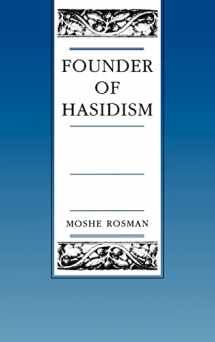
Founder of Hasidism: A Quest for the Historical Ba'al Shem Tov (Volume 5) (Contraversions: Critical Studies in Jewish Literature, Culture, and Society)
Book details
Summary
Description
This book goes farther than any previous work in uncovering the historical Israel ben Eliezer―known as the Ba'al Shem Tov, or the Besht―the eighteenth-century Polish-Jewish mystic who profoundly influenced the shape of modern Judaism. As the progenitor of Hasidism, the Ba'al Shem Tov is one of the key figures in Jewish history; to understand him is to understand an essential element of modern Jewish life and religion.
Because evidence about his life is scanty and equivocal, the Besht has long eluded historians and biographers. Much of what is believed about him is based on stories compiled more than a generation after his death, many of which serve to mythologize rather than describe their subject. Rosman's study casts a bright new light on the traditional stories about the Besht, confirming and augmenting some, challenging others. By concentrating on accounts attributable directly to the Besht or to contemporary eyewitnesses, Rosman provides a portrait drawn from life rather than myth. In addition, documents in Polish and Hebrew discovered by Rosman during the research for this book enable him to give the first detailed description of the cultural, social, economic, and political context of the Ba'al Shem Tov's life.


We would LOVE it if you could help us and other readers by reviewing the book
Book review



